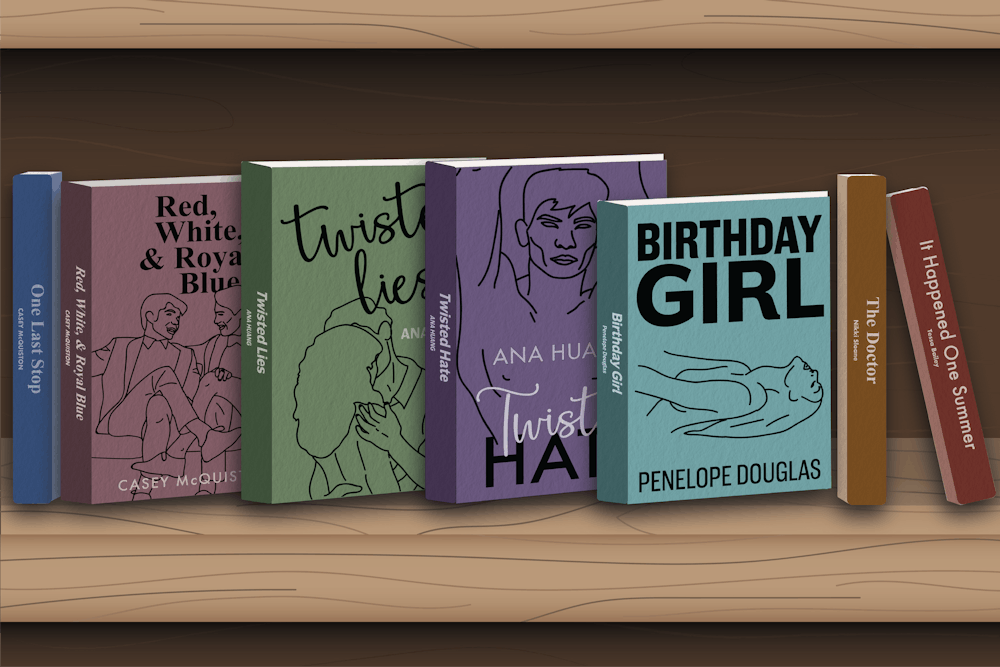The traditional romance-erotica, or “bodice ripper,” cover has long depicted a familiar image: a muscular and strapping man and a windswept heroine in a state of undress, locked in an intimate embrace.
The cover of romance author Cat Sebastian’s book "Unmasked by the Marquess" follows that formula exactly, but, when long-time romance reader Es Davis opened the book, they were surprised to find a romantic relationship featuring a non-binary protagonist.
“It was the first time I'd seen queer people finding love and not getting punished for it on the page, that was really powerful for me,” they said. “And so, ever since then, I've read quite a lot of romance.”
From 2021 to 2022, romance print novel sales rose 52.4 percent, according to Publishers Weekly, which Davis said was supported by online platforms such as TikTok, where "smut," romance novels with explicit sexual content, became an entire subset of TikTok, or "BookTok."
Davis is the store manager at Golden Fig Books in Durham. Since 2020, they said that more young adults have approached them for smut recommendations, compared to previous years when the primary smut audience was middle-aged women.
“What might have mortified millennial shoppers a decade ago, it's just like, ‘Yeah, whatever’ to Gen Z people,” they said. “'Nothing matters, might as well read what I want to read!'”
Smut's rise in popularity and reduction in shame for young readers might allude to changes in how women and marginalized people are engaging with their sexuality, but Davis said smut is not inherently feminist, since problematic themes of patriarchy and toxic masculinity can still be found widely across the genre.
To presume that every piece of erotica or smut will present exactly the same feminist values is to assume all romance writers have the same beliefs, Katrina Jackson, an erotica and romance-erotica author, said.
“My particular Black feminist politics is anti-colonial, it’s anti-police and anti-prison industrial complex, because those are things that I value,” she said. “But to ask another book to do that, in the same genre, is to presume that we're all the same even if that author is also a Black woman.”



